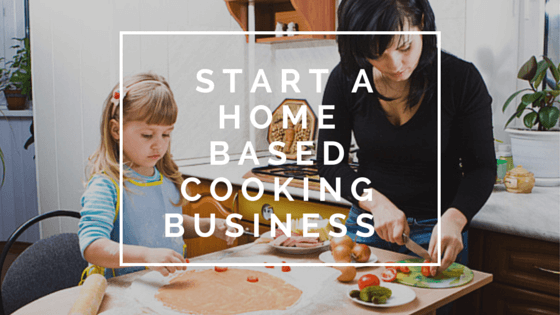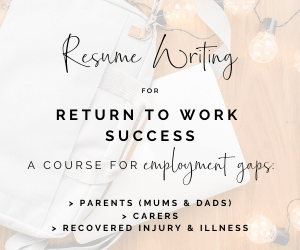If you enjoy cooking or baking and feel comfortable giving others your food, you might want to start your own home food business.
A home based cooking business can come in many forms – you might make specialty food products and sell them online, or you could be a caterer or a personal chef.
Home-based food businesses can be a hobby for a bit of extra income or the start of a much larger business. They are generally considered manufacturing and wholesaling enterprises (you are making the food for sale) but at a smaller scale.
Examples of home-based food businesses
Examples of home based cooking and food businesses can include:
- preparing food for sale at markets or school canteens in a domestic kitchen
- bed and breakfast accommodation
- home-based child care for a fee involving provision of food
- home-based catering businesses.
Some of the requirements also apply where the food premises are mostly commercial and people live at the premises, such as restaurants with accommodation for the restaurant owner, family or staff.
It is the responsibility of each food business to understand relevant food safety requirements and comply with them. Some food businesses engage consultants for expert food safety advice and to help them meet compliance obligations.
Let’s look at a few possibilities.
Speciality food
This is one of the easiest food businesses to start. If you make the world’s greatest biscotti or homemade jam, or are an amazing cake decorator you might consider selling it online or in the “real world” at markets and festivals. You can also look at selling food to local cafes and restaurants.
If you decide to sell your food product online, you can do it through your own website, on things like Facebook and Instagram, and even sites like eBay. You might also offer recipes, or several flavours or varieties of product. You might decide to keep it simple and offer the dry mix of a particular recipe so the customer can make the product at their convenience at home.
There are some limitations to be aware of, and these vary from area to area. There might be local council restrictions on selling food, or restrictions based on where the food is produced. Make sure you pay attention to these rules and restrictions before you make food and sell it. Often, there are loopholes (like selling a mix) you can discover that allow you to create a small business from the comfort of your own kitchen.
Catering
Many mums have started catering businesses from home. If you are always called upon to cook the food for special events and you have particularly good recipes, you might be halfway in business already. In addition, if you have a large group of family and friends, you might also have a built-in client base.
To run a catering business, you have to have a kitchen to work in. Most state laws restrict making food from your home and carting it to another location. But you can always rent kitchens to use, such as church kitchens and the kitchens at schools and the like.
This is an ideal business for mums because you can choose the jobs you want to work on. You can have a lot of control over your work schedule until the event itself, when you might work a few hours before and a few hours after the event.
Personal Chef
Personal chefs cook food for people in their own home. This is an excellent choice for the cook who has the skill to be a caterer but no permanent kitchen to use. By cooking the food in the client’s home, you circumvent that problem.
Most personal chefs offer two primary services – they will cook a special meal in someone’s home for them to eat right then, and they cook food for a family or person to eat throughout the week. In that case, you will cook or pre-prep several meals and leave them in the fridge or freezer for the customers to eat later.
More than the other options, working as a personal chef requires that you have some cooking training. If you have no formal training, it can’t hurt to take a few classes. Having a culinary degree isn’t necessary, but you do need to have some training under your belt before you sell yourself as a professional chef.
These jobs might not be jobs that you work exclusively at home, but all of them have a focus at home with some work needed off-site. In that way, they are ideal for the mum who wants to work at home but needs to get out and about now and then too.
Starting a cooking business from home
Starting a cooking business from home is not quite as easy as making some cakes and putting them out for sale. The requirements you need to meed can vary from state to state and even between different local councils so it’s important to do your research about what you need to do.
Most councils in Australia require you to register with them as a food premises. This includes home based businesses. These premises will usually be inspected at least once per year to ensure they are clean and complying with all regulations. Some councils may not allow all food businesses, such as those with high-risk foods.
Handling food for sale at an address which is also a domestic premises means there are special food safety issues to consider. Making, preparing or storing food at home for later sale is considered a food business. This means that the requirements to be met for retail food businesses are the same whether you are making it from home or in a commercial kitchen.
The Food Act 2003 and Food Regulation 2015 provide regulatory framework to ensure food is:
- safe and suitable for consumption
- provided in a manner that is not misleading
- handled, prepared, provided and labelled in a manner that is consistent with the Australia New Zealand Food Standards Code
This includes things like food handling, storage, temperatures, hygiene, cleaning and cross contamination. Home based food businesses may also need to consider things like the other people living in the house not being able to access food preparation areas and whether you have pets in the house.
The best way to start your journey into a home based food business is to check your locals council’s regulations and the food authority in your state for information on your specific situation.
Tips for starting a home cooking business
If you’re just getting started on your business journey, then not only do you need to look at the council and food regulations, you also need to get your head around starting a business. Here are a few tips to help you start a cooking business from home.
Have a business plan
It’s important when starting up any business to have a business plan to help you get started with a clear direction. A good business plan should have things in it like;
- What are you selling?
- Who is your target market?
- Your unique selling point
- Where and how are you going to sell your food?
- Will you need to deliver your items? Can you post them?
- Will you batch your goods or make them to order?
- What equipment will you need?
- How are you going to market your business?
- What start up capital will you need?
If you’re never done a business plan before or you find them all a bit overwhelming, our Business Startup Toolkit has templates for a business plan, marketing plan, financial plan and startup checklist to help you on your way.
Get your premises ready before applying for approvals
There is no point applying for council approval to run a home cooking business if your kitchen or home has no hope of being approved. Get onto your local council website or ring them to work out what standards you need to reach to have your business approved. If you need to make many changes, then talk to someone in the council for the likelihood of an approval being granted for your to run your business. You may find the cost involved not worth it if your contact says that council are unlikely to approve your application.
Use quality ingredients
To make your business a success, people need to love your food. Use quality ingredients to make sure you are getting the best tasting food you can. Also speak to local producers to see if you can get deals by going straight to them to save on costs. Starting with quality products will produce a quality dish.
Don’t forget customer service
Food businesses can get a lot of repeat business if the food is good. But you need to remember to treat your customers well too. It doesn’t matter how great your food is, if you forget about customer service. If your food is good and you value your customer, it is the secret to food business gold. Not only will you get repeat customers, you will get a lot of word of mouth business as well.
Use great visuals
If you are selling online or using social media make sure you use good pictures or video. Great visuals can lead to sales. How often have you looked at a picture of food and it’s made your hungry!
Starting a home based food business can be complicated as there is a lot to consider. But with some research and planning you can have a thriving business doing what you are passionate about.
Resources and Useful Contacts
Starting A Food Business – Food Authority NSW
Home Based and Mixed Businesses – Food Authority NSW
10 Tips For Starting A Food Business
Restaurant and Catering – Restaurant and Catering Industry Association of Australia Inc
www.lhmu.org.au – Australian Liquor, Hospitality and Miscellaneous Workers’ Union
Australian Government Small Business Support Line 1800 777 275






